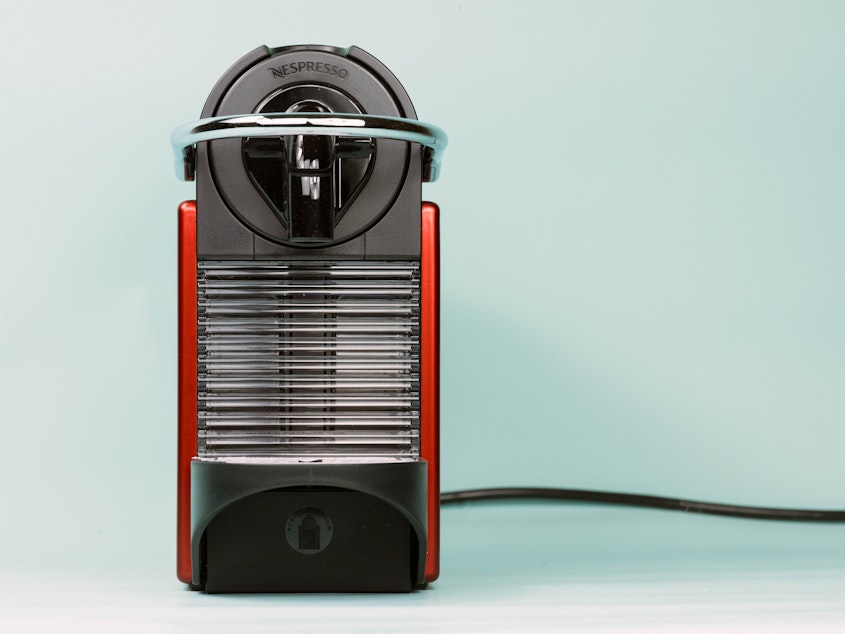A room of one's own? Not if your smart home has a say

In "1984," surveillance devices were installed in homes by the government. In 2018, we pay corporations to install the surveillance ourselves. Kashmir Hill, a journalist with Gizmodo, chatted with Bill Radke about her own foray into smartening up her home.
Although she was looking forward to fresh-brewed coffee when she woke up, convenience wasn't the primary reason Hill connected her home to the cloud. As she says in the piece, "The house that spied on me," it was to find out whether it would betray her.
She enlisted a coworker to monitor the traffic out of her house, and what they found surprised them both. What you screen on Hulu is encrypted, for example. But what it suggests to you, based on your interests, is not.
Hill lives in a one bedroom apartment with her husband and daughter, and the air-quality monitor in her daughter's room altered their habits to allow for more circulation. But the design of their "smart" baby monitor resulted in flashing lights just as their daughter settled down to sleep.
Speaking of sleep, many of the devices have proprietary software that doesn't play well with others. Her dreams of fresh-brewed coffee upon waking ended up being an irritating tug of war with Alexa each morning -— mornings when her smart mattress cover would send her a report reminding her of how badly she'd slept the night before.
Slow-to-brew coffee, a nagging bed: not ideal, but not so sinister. However, there were other things that gave her pause. Buried in the terms of service of many devices is language specifying that you don't really own them. You share custody with the company, which can change the function of the device at any time.
The devices also report back to the companies more frequently than you might expect: Amazon Echos, for example, ping their mother ship once every three minutes.
Theoretically then, your smart speaker could become the hub of a social network. And your smart sex toy — yes, that's a thing — could be sharing all kinds of minute-by-minute data that you'd rather not divulge.
So should you take the plunge into the internet of things? According to Hill, it's your call. There are privacy concerns and the potential for hacking. The biggest danger, she says, is that it might be more annoying than anything else. The technology just isn't there yet to make a smart home as supportive as we might like.
In the meantime, don't stop brewing your own coffee ... and maybe keep your sex toys off the internet. Just for now.

